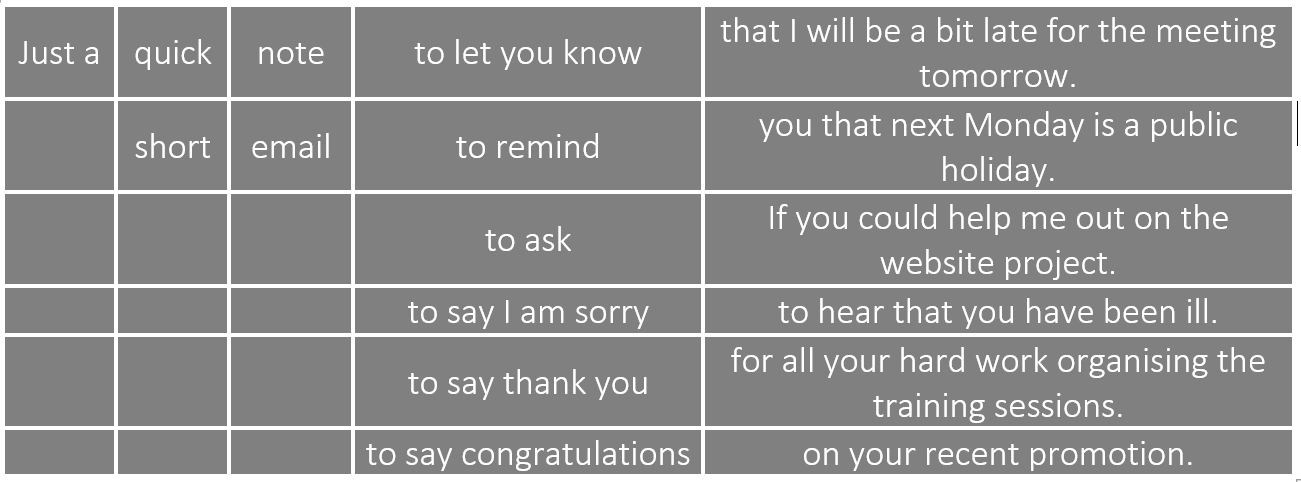How to use the Most Confusing English Words Properly
Come or go? Is it affect, or effect? We’ve simplified the most confusing English words for you!
By now you might have noticed that English is a complex language, and it’s not just the grammar. Vocabulary has its own complications with many easily confused English words due to their similarity. There are usually two main reasons for these cases. The first is the old-age battle between American and British English – which means it’s a matter of preference and influence. Another common reason is that the concept doesn’t translate in other languages, making it slightly more difficult to comprehend. to make matters worse, there is often no logical pattern to follow either.
To help make your English learning process simpler, we’ve consulted our in-house teachers and compiled a list of the most commonly confused words. Thanks to our tips, you will never confuse these words again.
1.Come/Go
‘Come’ and ‘go’ have the same basic meaning, which is why they’re first on the list of easily confused English words. ‘Come’ is used to show movement toward the speaker or the person being spoken to. ‘Go’ Is used to show movement away from the speaker or the person being spoken to. So if you’re in Malta at the moment, and returning home in a week, you will say ‘I’m going home in a week’, while your family will say ‘(name)’s coming home next week.’
2. Affect/Effect
‘Affect’ means to influence or create an impression on something. ‘Effect’ is the thing that is created. Sounds confusing right? A simple way to remember the difference between these English words is that ‘Affect’ is almost always a verb, whereas ‘effect’ is almost always a noun. For example, ‘The weather affects (verb) my mood’, while, ‘The weather has an effect (noun) on my mood’.
3. Advice/Advise
While these are two of the most mixed-up English words by students, they’re also the simplest to understand. ‘Advice’ is the noun (a thing), ‘advise’ is the verb (An action). As in, ‘When you need medical advice, I advise you to go to a doctor, and not use google!’
4. Practice/Practise
These English words follow the same rule as advice/advise. Practice is the noun (thing), while practise is the verb (action). For example: ‘I’m starting a course at BELS because I need more practice in English’, and ‘While studying in Malta, I practise English every day!’
5. Since and For
These two are another classic amongst easily-confused English words. ‘Since’ and ‘For’ are both used to talk about something that started in the past and continues into the present. ‘For’ is used to express the amount of time (how long). ‘Since’ is used when specifying the starting point of something. For example, ‘I’ve been a married since 2000’ or ‘I’ve been married for 17 years’.
Is the difference between these confusing words clearer? Try writing some sentences using these English words and give them to your teacher to correct! Come back for more tips!
6. Among/Amongst
The difference between ‘among’ and ‘amongst’ is probably one of the most googled confusing English words. Technically these two words are both acceptable and can be used interchangeably. The difference is that ‘amongst’ has British origins, while ‘among’ has American origins. Today, ‘among’ is widely used around the world, and ‘amongst’ is a bit antiquated. So when unsure, just use ‘among’ – if you would like to impress a British national, go for ‘amongst’.
7. Learned / Learnt
This is another case of American vs. British English. ‘Learned’ is used in American English, while ‘learnt’ is the British English version (and you’ll often find comments that it’s the only correct version).
8. Dreamed / Dreamt
These pair are often confused even by native speakers. It follows the exact same explanation as above- ‘dreamed’ is the American version, whereas ‘dreamt’ is the British version.
9. Breath / Breathe
In this case, the difference refers to different forms of the same word. ‘Breath’ is a noun and refers to the air that goes in and out of your lungs when you breathe. See what we did there? Yes, that’s correct, ‘breathe’ is the verb version of the same root word and refers to the process of inhaling and exhaling.
10. Complement / Compliment
The difference between these English words is one of the more nerve-wrecking ones! ‘Complement’ is used to show that something works well with second object. For example, ‘Those shoes complement the bag’. On the other hand, a ‘compliment’ is a nice thing to say to another person. For example, ‘Jack received many compliments at his art show’.
11. Disinterested / Uninterested
This pair is probably the most controversial amongst all the confusing English words. In everyday language they are sometimes used interchangeably, however, according to grammatical rules, this is incorrect. While they both imply a lack of interest, they are not synonyms. ‘Uninterested’ means ‘not interested’, and ‘disinterested’ means impartial. Therefore, the opposite of ‘interested’ is ‘uninterested’.
12. Lay / Lie
In the present tense, ‘lay’ is a verb that means ‘to put or set something down’ – it is the action when someone does this to another object/person. A familiar example can be seen in how we use ‘to lay the table’ to describe preparing the table for dinner. Another example is when you put a baby in a cot, you ‘lay the baby down’. On the other hand, ‘lie’ is the verb that means ‘to be in a horizontal position’. So it can be used to say ‘I’m tired, I need to lie down or even, ‘He went to lie down because he’s tired’. The difference here is that ‘lie’ is something the individual puts themselves in a horizonal position, while ‘lay’ is when someone puts something else in a horizonal position.
Simple, right? The situation becomes a bit more complicated when you look at the different verb formats. You can read more about that here.
13. Lead / Led
This one is a bit simpler! The verb ‘to lead’ comes from the noun ‘leader’ and has the same meaning. An example can be seen in the following sentence: ‘A leader’s (noun) job is to lead (verb) their team to success!’. And ‘led’ is the past tense version, therefore ‘The coach led the team to victory’.
14. Read / Read
‘Read’ can be used as an adjective, a present tense verb, and also a past tense verb – yes they are all written the same exact way! Let’s start with the adjective – it is used to say someone is knowledgeable around a certain topic, for example, ‘Ada is well-read in French literature’. The verb ‘to read’ in the present tense and in the past tense is written exactly the same, but it’s pronounced differently, which can cause some confusion for English students. ‘To read’ in the present tense is pronounced as ‘/riːd/’ – ‘I read at least an hour a day’. While ‘read’ in the past tense is pronounced as ‘/rɛd/’ – ‘He read the article this morning’.
15. Loose / Lose
These two have completely different meanings. ‘Loose’ is an adjective that means the opposite of ‘tight’. Whereas ‘lose’ means to ‘fail to win, to misplace, or to free oneself from someone or something’. Look at the following examples:
- ‘When he lost (past tense verb of ‘lose’) 20 kilos, all his old clothes were loose (adjective)’.
- ‘The team lost (verb the game in spite of all their training.’
- ‘I always lose (verb) my sunglasses when on holiday’.
Struggling to understand these confusing English words? Learn with a BELS teacher.
Self-study is a great start; however, language is a living thing and cultural and sociolinguistic elements play a large part in mastering a language. Unfortunately, spell-checkers and language tools are not much help here either. This is why you need a real-life teacher who can explain the context, difference between textbook language and real-life usage, as well as the elements of formal or informal language which influence speech.
Contact us to learn more about study trips in our schools in Malta and Gozo, or online lessons from anywhere in the world.












